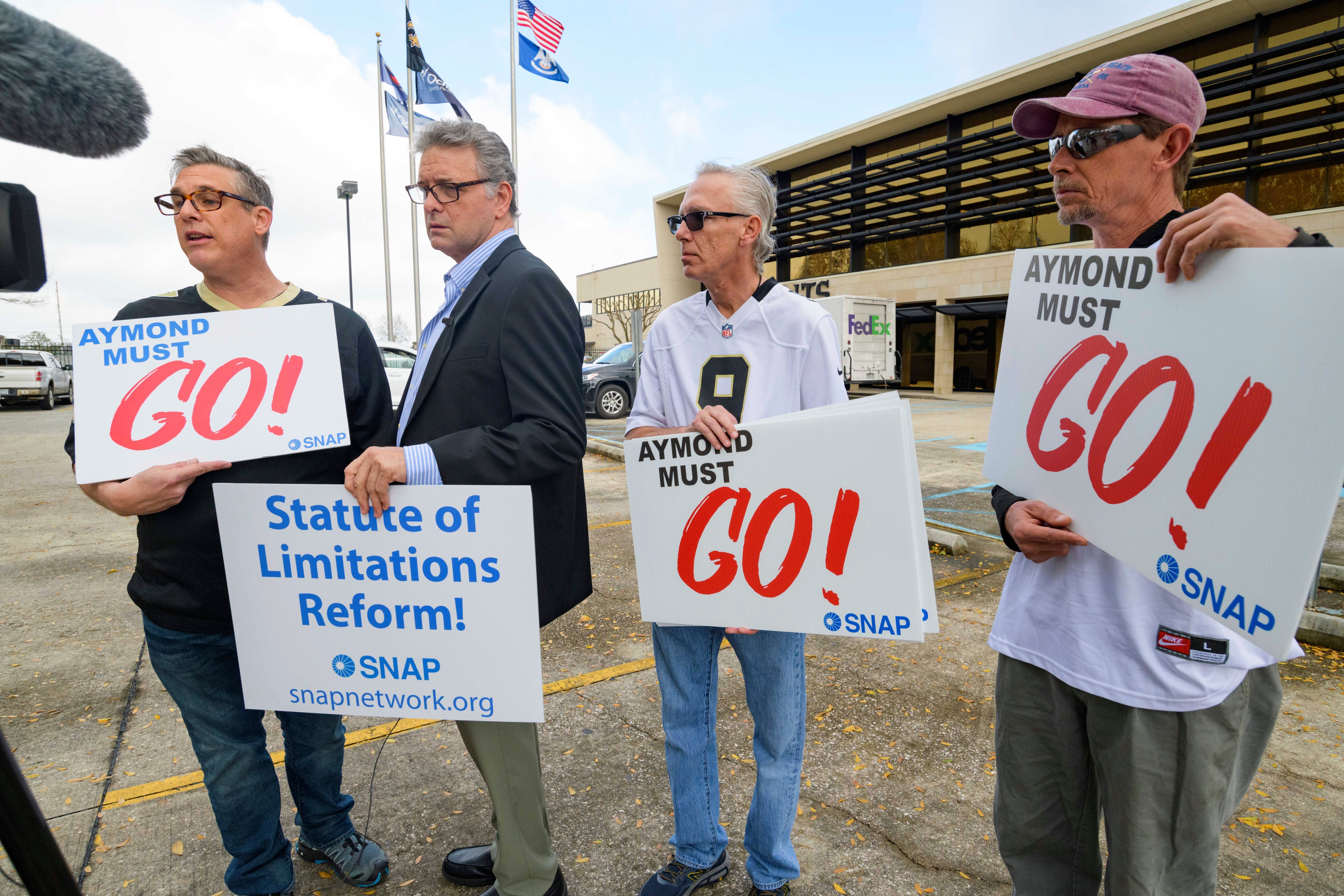Louisiana Legislature opened window for sex abuse survivors to sue, but state's high court shut it
Advocates for adult victims of childhood sexual abuse say they will ask Louisiana’s Supreme Court to reconsider a ruling that wiped out 2021 legislation giving them a renewed opportunity to file damage lawsuits

Your support helps us to tell the story
From reproductive rights to climate change to Big Tech, The Independent is on the ground when the story is developing. Whether it's investigating the financials of Elon Musk's pro-Trump PAC or producing our latest documentary, 'The A Word', which shines a light on the American women fighting for reproductive rights, we know how important it is to parse out the facts from the messaging.
At such a critical moment in US history, we need reporters on the ground. Your donation allows us to keep sending journalists to speak to both sides of the story.
The Independent is trusted by Americans across the entire political spectrum. And unlike many other quality news outlets, we choose not to lock Americans out of our reporting and analysis with paywalls. We believe quality journalism should be available to everyone, paid for by those who can afford it.
Your support makes all the difference.Advocates for adult victims of childhood sexual abuse say they will ask Louisiana's Supreme Court to reconsider a ruling that wiped out 2021 legislation giving them a renewed opportunity to file civil damage lawsuits over their molestation.
The ruling bucked a trend. Advocates say 24 other states have laws, upheld as constitutional, that revived the right to sue for people abused as children. Until last week's 4-3 decision in New Orleans, Utah was the only state where such a law was found unconstitutional.
Richard Trahant, an attorney who handles cases for sex abuse victims, said Monday that the Louisiana high court will be asked to reconsider its Friday ruling. “Respectfully, any one, or all four of the justices in the majority should change their votes and move to the right side of history and the law.”
Richard Windmann, president of the group Survivors of Childhood Sex Abuse, said proponents of the law would go the U.S. Supreme Court.
Another possible avenue mentioned by advocates would be to amend the state constitution, which would require approval from two-thirds of the state House and Senate and approval from voters statewide.
"We are sure as hell NOT giving up!" Kathryn Robb, executive director of Child USAdvocacy, said in an email.
It was unclear how many people would be affected by the ruling. Trahant said he expects the Archdiocese of New Orleans will seek to “disallow or minimize” many the more than 500 claims tied up in an archdiocese bankruptcy case.
“As far as new lawsuits that have not been filed yet, that number is harder to quantify,” Trahant said. “We have had some cases in a holding pattern for three years, and it has been an excruciating wait for those victim-survivors. ”
The law upended by last week's decision was passed by the Louisiana Legislature in 2021 and amended in 2022. It gave victims of past abuse, whose deadlines for filing a civil lawsuit had expired, until June of this year to file. At the time, its chief sponsor, Rep. Jason Hughes, a New Orleans Democrat, cited research that showed the average age for child sex abuse victims to report the crimes is 52.
Friday's decision came in a case filed against the Catholic Diocese of Lafayette by plaintiffs who said they were molested by a priest in the 1970s while they ranged in age from 8 to 14, according to the Supreme Court record.
Supreme Court Justice James Genovese, writing for the majority of the court, said the law conflicted with due process rights in the state constitution. Upholding it, he wrote, would would “upend nearly a half of a century’s jurisprudence” holding that the protection against lawsuits once a time limit had passed was a right that couldn't be taken away “ despite the sickening and despicable factual allegations in this case ....”
Justices Scott Crichton, Jefferson Hughes and Piper Griffin voted with the majority.
Chief Justice John Weimer dissented, saying the majority “does not attempt to examine, much less explain, how due process is violated in this instance.”
Justices Jay McCallum and William Crain also dissented.
Advocates said the ruling exacerbated longstanding emotional trauma.
“A lot of survivors are really triggered and really upset about what happened.” John Anderson of suburban New Orleans said Monday. Anderson, 57, said he was victimized four decades ago by a now-deceased Catholic deacon in the New Orleans area and has long been active in moves to hold church officials accountable.
“I fielded hundreds of victim-survivor phone calls since Friday, in various states of mental distress,” Windmann said. “After all they went through, again they are re-traumatized, re-victimized.”
Subscribe to Independent Premium to bookmark this article
Want to bookmark your favourite articles and stories to read or reference later? Start your Independent Premium subscription today.